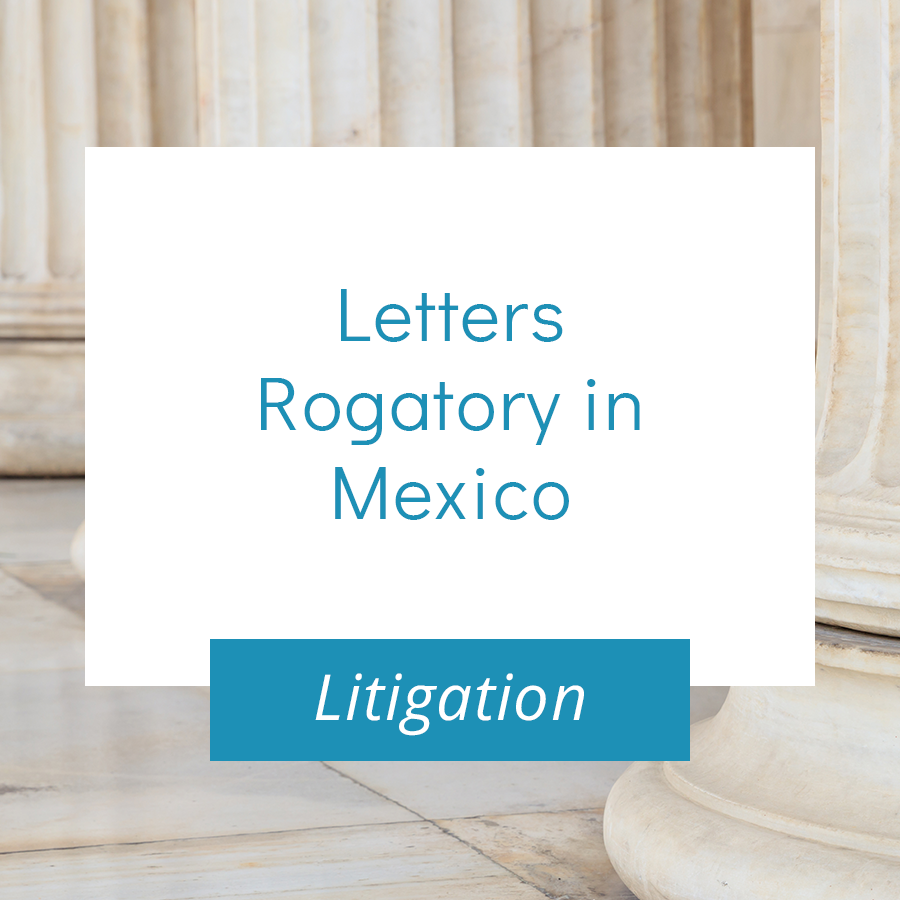Letters Rogatory Explained: Facilitating Legal Cooperation In Between Countries

Definition of Letters Rogatory
Letters rogatory are formal demands made by a court in one jurisdiction to a court in one more territory, looking for support in getting proof or testimony for a legal action. This procedural system is crucial in the context of worldwide legislation, where lawful systems may differ, and cross-border teamwork is essential. Letters rogatory help with the event of details that might be essential for adjudicating situations, specifically in circumstances including intricate global issues.
Usually, these demands arise in civil, criminal, or administrative matters where a celebration needs evidence that is situated outside the territory of the asking for court. The letters function as a method to make certain that the concepts of due procedure are upheld, enabling courts to accessibility evidence that could or else stay hard to reach because of lawful or geographical obstacles.
The usage of letters rogatory is controlled by international treaties, reciprocal arrangements, or residential regulations, which mark the treatments and commitments of the courts entailed. It is very important to keep in mind that the implementation of such requests is not ensured; they depend on the laws and practices of the jurisdiction obtaining the letter. Hence, letters rogatory are a crucial tool for fostering legal cooperation and making certain justice throughout boundaries.
The Process of Issuing Letters Rogatory
Issuing letters rogatory involves an organized procedure that guarantees compliance with both residential and global lawful requirements. The requesting event, normally a court or legal authority, composes a formal demand outlining the nature of the assistance looked for, the evidence or details needed, and the lawful basis for the request. This record needs to be precise to promote understanding by the foreign jurisdiction.

The following action includes transferring the letters rogatory to the assigned foreign authority. This is usually done via polite channels or international legal aid structures, making certain that the demand is gotten and acknowledged by the international court. The international court then processes the demand according to its own legal treatments, inevitably reacting to the requesting party with the desired info or evidence, hence promoting worldwide legal cooperation.
Relevance in International Regulation
The importance of letters rogatory in international regulation can not be overemphasized, as they act as an essential device for judicial teamwork across boundaries. These formal ask for help in legal issues allow courts in one territory to inquire, evidence, or the visibility of witnesses from one more territory, consequently facilitating the management of justice in transnational instances.
Letters rogatory are specifically important in the context of globalization, where legal conflicts usually cover several countries. They make it possible for the collection of proof that might or else be hard to reach, making sure that legal procedures are notified and fair. By promoting partnership between judicial systems, letters rogatory help support the rule of legislation and advertise mutual respect amongst countries.
Furthermore, the usage of letters rogatory shows a dedication to global standards and principles of cooperation, reflecting the interconnected nature of modern-day legal techniques. It illustrates the significance of adhering to well-known treatments and treaties, such as the Hague Convention, which offers a structure for these demands - Letters rogatory. Eventually, letters rogatory enhance the efficacy of legal procedures, making certain that justice is not hindered by geographical borders
Difficulties and Limitations
Regardless of their Source relevance, letters rogatory face numerous difficulties and restrictions that can hinder their efficiency. One primary concern is the differing legal structures and procedures throughout jurisdictions, which can bring about misunderstandings and hold-ups in the implementation of requests. Different nations may have distinct visit this site requirements for the credibility of letters rogatory, complicating the process additionally.
Furthermore, the frequently protracted nature of worldwide legal participation can prevent timely accessibility to evidence or witnesses. This delay might adversely impact recurring examinations or legal process, specifically in situations needing urgent activity. In addition, the absence of sources and training in some jurisdictions can lead to not enough handling of demands, causing incomplete or insufficient feedbacks.
Cultural distinctions and differing attitudes in the direction of legal processes can additionally present substantial barriers. Countries with less formal lawful systems may have a hard time to abide with the step-by-step roughness anticipated in letters rogatory. Political tensions in between countries can influence the willingness to carry out demands, resulting in a lack of collaboration and reducing the energy of this device in international regulation. These obstacles demand constant dialogue and reform to enhance the effectiveness of letters rogatory in lawful teamwork.
Study and Instances

On the other hand, obstacles can emerge, as seen in a case including a European country looking for evidence in an ongoing criminal issue from a non-EU country - Letters rogatory. The procedure was delayed as a result of governmental difficulties and differing lawful requirements, eventually impeding the examination
These instances illustrate that while letters rogatory can facilitate worldwide participation and accelerate legal procedures, they likewise highlight the need for clear communication and understanding of legal frameworks you can try these out between nations. Such instance research studies emphasize the value of refining this tool to boost effectiveness and performance in worldwide legal matters.
Conclusion
In summary, letters rogatory serve as an important mechanism for facilitating lawful cooperation in between countries, guaranteeing the collection of evidence and testament across territories. Their significance in global regulation can not be overemphasized, as they promote due process and improve the effectiveness of cross-border lawful proceedings.
Letters rogatory are official requests made by a court in one territory to a court in one more territory, seeking support in getting evidence or testament for a lawful proceeding. The requesting party, commonly a court or lawful authority, prepares an official request detailing the nature of the support looked for, the proof or details required, and the lawful basis for the demand. The foreign court after that refines the request according to its own legal treatments, ultimately reacting to the requesting event with the popular details or evidence, thus assisting in international lawful collaboration.
In addition, the usage of letters rogatory demonstrates a dedication to global norms and concepts of collaboration, mirroring the interconnected nature of modern-day legal techniques.Worldwide lawful participation through letters rogatory is not without its real-world effects, as highlighted by numerous instance studies that highlight both successes and obstacles.